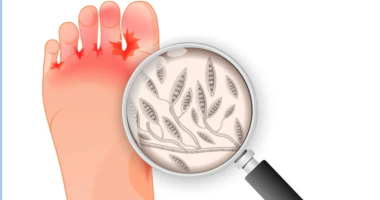Find out the “6 Habits that exposes you to genital herpes” Genital herpes is a common sexually transmitted infection caused by the herpes simplex virus (HSV). Understanding the habits that can expose you to genital herpes is essential for prevention and management. Here are 6 habits that exposes you to genital herpes:
1. You’re having unprotected Sex
Having unprotected sex is a common way to expose oneself to genital herpes. The virus can be spread through skin-to-skin contact during vaginal, anal, or oral sex. Using condoms can provide some protection, but it’s important to note that they do not guarantee prevention. It’s recommended to abstain from sex during a herpes outbreak, as the virus is most contagious when sores are present. Additionally, it’s advised to avoid sexual activity with a partner who has a cold sore to reduce the risk of oral herpes transmission to the genitals.
It’s essential to have open and honest discussions with sexual partners about their sexual history and any history of sexually transmitted infections to make informed decisions about sexual activity. Limiting the number of sexual partners and being aware of the risks associated with unprotected sex are important measures to reduce the risk of exposure to genital herpes
2. You have more than one sexual partners
Having more than one or multiple sexual partners can increase the risk of exposure to genital herpes. The virus can be spread through sexual activities with two or more people within a specific time period, leading to a higher likelihood of transmission. Engaging in sexual activities with multiple partners, especially without the consistent and correct use of barrier methods, can facilitate the spread of sexually transmitted infections, including genital herpes. It’s important to have open and honest discussions with sexual partners about their sexual history and to use protection consistently to reduce the risk of exposure to genital herpes.
3. You rarely discuss sexual health with partner
Lack of communication about sexual health and STI status can contribute to the spread of genital herpes. Research has shown that the stigma associated with genital herpes often leads individuals to conceal their status, making it challenging to have open and honest discussions with sexual partners. This lack of communication can result in a higher risk of transmission, as individuals may not be aware of their partner’s herpes status and, therefore, may not take necessary precautions to prevent infection. It’s important to promote honest and transparent communication about sexual health to reduce the risk of exposure to genital herpes and other sexually transmitted infections,
4. You engage in sexual activity during outbreaks
Engaging in sexual activity during outbreaks of genital herpes significantly increases the risk of transmission. The virus is most contagious when symptoms are present, such as sores or blisters. Research has shown that abstaining from sexual activity during an outbreak is crucial to reducing the risk of spreading the infection to a partner.
5. Receiving oral sex from someone with cold sores
Receiving oral sex from someone with a cold sore can lead to the transmission of genital herpes. Cold sores are caused by the herpes simplex virus type 1 (HSV-1), which can be spread to the genitals through oral sex, even if the person with the cold sore does not have visible sores at the time. It is recommended to wait until the cold sores are completely healed, which can take 2-6 weeks, and to use protection to reduce the risk of transmission. The CDC also confirms that HSV-1, which often causes cold soes, can result in genital herpes through oral sex. It is important to avoid sexual activity, including oral sex, during an outbreak and until the sores have completely healed to prevent the spread of the virus.
6. You share personal items with people
Sharing personal items, such as makeup, chapstick, lipstick, razors, or towels, can increase the risk of transmitting herpes due to the potential for skin-to-skin contact and the transfer of the virus. While the risk of contracting herpes from sharing items like drinks, glassware, or food is very low, it’s always best to avoid sharing personal items to minimize the risk of transmission. Practicing safe sex, avoiding skin-to-skin contact during outbreaks, and properly managing personal items can help reduce the risk of herpes transmission. Next read : 12 Diseases You Can Catch Through Dirty Body Towel
More…
You did not confirm your status before pregnancy and breast feeding period
Not confirming your herpes status before pregnancy and during the breastfeeding period can lead to the potential transmission of the virus to the baby. Genital herpes, caused by herpes simplex virus (HSV), can be transmitted to the baby during childbirth if the mother is experiencing an active outbreak. Primary or initial infection during pregnancy has the highest risk of transmission to the baby, while women with recurrent outbreaks have a lower rate of transmission due to the development of antibodies that provide some protection to the baby. It is important for women to inform their healthcare providers about their herpes status, as specific management plans, including the use of antiviral medications, may be recommended to reduce the risk of transmission during pregnancy and childbirth. Additionally, if a mother has herpetic lesions on her breast, she should refrain from breastfeeding from the affected breast until the lesions have healed to prevent the transmission of the virus to the baby. It’s also important to follow appropriate hand hygiene practices and seek medical advice to ensure the safety of the baby during the breastfeeding period.
ALso Read: Does strong immune system impact Herpes simplex virus?
In conclusion, by being aware of these 6 Habits that exposes you to genital herpes and taking preventive measures, such as using protection, having open discussions with partners, and seeking medical advice, the risk of exposure to genital herpes can be reduced. It’s important to approach these discussions with empathy and understanding, as the stigma associated with genital herpes can impact individuals’ willingness to disclose their status. Open and honest communication, along with practicing safe sex, are key components of reducing the risk of genital herpes transmission.









